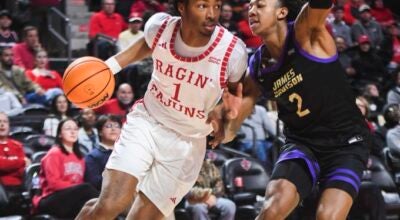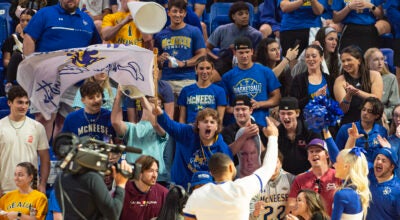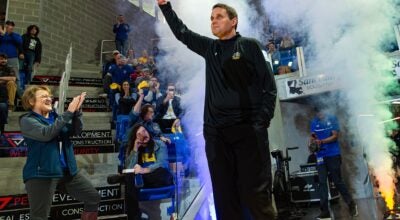SLC ready to roll with FBS punches
Published 9:17 am Thursday, July 24, 2014
Over the past half century there has been one constant in the Southland Conference: change.
New teams enter as old foes exit. This season is no different.
But there is a greater concern for the league than the revolving door of schools that has become the offseason norm in all of college football.
That is money.
The big conferences have talked of separating themselves from the rest of the sport even further, using their mega-dollar television deals to fuel the split.
The big five conferences have suggested they no longer play the smaller schools, which would leave teams in places like the Southland without the big checks they have come to count on to help pay the bills.
But there is another part of the cash grab that could hurt the league’s talent pool. That’s the paying of players.
Coaches from larger programs, especially the power five conferences, have pushed to pay players for their services. It seems to be only a matter of time before the NCAA approves such a move with all the financial pressure the monster programs and their TV partners can apply.
The Southland can’t pay what an Alabama or LSU can, that is obvious. Still, the league has been a good landing place over the years for players who were talented but found themselves riding the bench at the big schools.
McNeese State picked up tight end Nic Jacobs last year from LSU and are counting on five “fallbacks” to contribute this year, including two from the SEC and two more from the Big 12.
Southeastern Louisiana used transfers, several from bigger schools, to rebuild last year and win the conference championship.
That included SLC Player of the Year Bryan Bennett, a quarterback who started his college career at Oregon. With little playing time to be found with the Ducks, Bennett moved to the Lions to continue his career.
But would he have done so if he was making money riding the pines in Eugene and the Pac-12?
“For a guy who loves to play the game and continue his dreams and goals you might have to sacrifice some of the nicer things to do it, but players want to play,” Bennett said.
That’s easy to say when you are not missing paychecks.
“It could happen,” Southeastern head coach Ron Roberts said. “You hope they love the game and are not doing it for the money.
“If $5,000 is good for you while you sit on the bench and not raise your aspirations, I’m not sure I really want him in our program.”
McNeese had coach Matt Viator echoed those same words, saying that money isn’t everything to everybody.
“I believe kids want to play,” Viator said. “You have to want to play to be good in this game. You want those kids that love playing the game above anything else.”
That’s what Bennett spoke of most.
“At the end of the day you are a football player and you should want to go out and showcase your talents,” he said.
Maybe that is the new money trap, or maybe it is the lack of revenue if the big schools no longer schedule teams from smaller conferences.
McNeese needs the money from such games to help pay for sports programs in general. This year the Cowboys open at Nebraska and next season they travel to LSU. Those games mean more than exposure for the program, they mean cash.
“Those games have been an important part of our schedules for a lot of reasons,” said McNeese Athletic Director Bruce Hemphill. “We want to continue those games as long as they benefit our program.”
Unfortunately, that doesn’t appear to be in the hands of smaller schools. Down the road those dollars may be gone for good.
Not everybody believes all the doom and gloom some are forecasting for the Football Championship Subdivision schools.
“I don’t think the sky is falling,” said Southland Commissioner Tom Burnett. “I hear a lot of that talk and you have to be ready for whatever happens.
“We have to be ready to roll with the punches.”
Even if those punches hit the league right in the wallet.
l
Jim Gazzolo is managing sports editor. Email him at jgazzolo@americanpress.com





